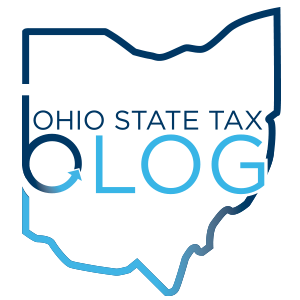Ohio Commercial Activity Tax – Ohio Board of Tax Appeals relies on federal income tax treatment of vehicle financing transactions for reversal of CAT assessment.
 A common question in many Ohio commercial activity tax (CAT) audits is whether federal tax treatment may be relied upon. Although the statute says it should (R.C. 5751.01(K)), the Tax Commissioner is often reluctant to accept the federal treatment for CAT purposes – a gross receipts-based tax, not an income tax. The Ohio Board of Tax Appeals recently sided with a taxpayer and respected the federal tax and GAAP treatment of complex financing transactions. The Board ruled that Hyundai properly excluded receipts from its captive financing company from the sale of 1231 assets and loans payments (interest and principal) from the CAT base. Hyundai Motor Finance Co., v. McClain, Ohio BTA Case No. 2015-785 (Feb. 6, 2020). Although the Board refused to adopt wholesale deference to federal income tax treatment, the ruling highlights the importance of federal income tax and accounting principles in determining proper treatment under the CAT.
A common question in many Ohio commercial activity tax (CAT) audits is whether federal tax treatment may be relied upon. Although the statute says it should (R.C. 5751.01(K)), the Tax Commissioner is often reluctant to accept the federal treatment for CAT purposes – a gross receipts-based tax, not an income tax. The Ohio Board of Tax Appeals recently sided with a taxpayer and respected the federal tax and GAAP treatment of complex financing transactions. The Board ruled that Hyundai properly excluded receipts from its captive financing company from the sale of 1231 assets and loans payments (interest and principal) from the CAT base. Hyundai Motor Finance Co., v. McClain, Ohio BTA Case No. 2015-785 (Feb. 6, 2020). Although the Board refused to adopt wholesale deference to federal income tax treatment, the ruling highlights the importance of federal income tax and accounting principles in determining proper treatment under the CAT.
- Receipts from Securitization Transactions: The Board held these receipts are excluded from the CAT as proceeds from loans. HCA purchased retail installment sale contracts from dealers (RISCs) and packaged them for use as collateral to borrow funds and create cash flow. The RISCs were transferred to a special purpose entity and then pooled into a trust that issued notes backed by the RISCs. The pool transfer transactions were “secured financings”—not sales—for federal tax purposes. Moreover, the substance of the transactions showed that HCA was not selling assets, but collateralizing assets to create cash flow, which constituted a loan excluded from the CAT under R.C. 5751.01(F)(2)(e).
- Sales from Retired Leased Vehicles: The Board determined these were sales of §1231 assets excluded from the CAT under C. 5751.01(F)(2)(c). Hyundai Motors (HCA) purchased leases (and leased vehicles) from automobile dealers. If the lessee decided not to purchase the vehicle by the end of the lease, HCA sold the vehicles at auction or to a dealer. The Tax Commissioner asserted the retired leased vehicles were “dual-purpose” property held for sale and lease and thus were not §1231 assets. Recordak Corp. v. United Sates, 325 F.2d 460 (Ct. Cl. 1963). Although some of the leased vehicles were eventually sold to lessees, the vehicles were primarily held for lease, not includible in HCA’s inventory, and depreciable under I.R.C. § 167. Therefore, the vehicle sales were properly classified excluded from the CAT.
- Subvention Payments: Relying on federal accounting principles, the Board found that subvention payments constituted interest and were excluded from the CAT under 01(F)(2)(a). The “subvention payments” were received for participating in special financing programs that offer leases and installment contracts for below-market interest rates. The dealer essentially reimburses HCA for the difference between the market-rate interest and the below-market interest collected from customers. Since the payments are actually for “the use of money” and treated as interest for accounting and federal income tax purposes, these gross receipt were properly excluded from the CAT.
Clearly, the Board relied heavily on federal income tax treatment to determine the proper treatment of gross receipts for the CAT. The Tax Commissioner has not been so willing do so during audits, although perhaps this case will start a new trend. We will continue to monitor this case and other significant developments in the Ohio CAT. If you have questions on how your transactions are treated under Ohio’s Commercial Activity Tax, do not hesitate to contact us.
Attorney Steven A. Dimengo is Managing Partner of Buckingham, Doolittle & Burroughs, LLC. He helps clients with complicated tax challenges including Ohio sales/use, income, commercial activity and federal taxes and has represented clients before the Ohio Supreme Court. Steve can be reach at [email protected] or 330.258.6460.
Richard B. Fry III is a partner and Buckingham’s Taxation Practice Group Chair. He focuses on state and local tax compliance and controversies, including Ohio and multistate sales/use tax, commercial activity tax, and personal income tax issues. Rich can be reached at [email protected] or 330.258.6423
Nathan M. Fulmer is an associate in Buckingham’s Taxation Practice Group. He represents clients on a broad range of tax planning and controversy matters. His joint degree in taxation allows him to provide unique solutions when assisting clients on business matters. Nate can be reached at [email protected] or 330.258.6464.
About Buckingham, Doolittle & Burroughs:
Buckingham, Doolittle & Burroughs, LLC is a corporate law firm that counsels middle-market executives and business leaders all over Ohio and beyond. With offices in Canton, Akron, and Cleveland, Buckingham offers clients Business Law Reimagined through sophisticated and practical legal services. Serving the region for more than 100 years, Buckingham’s mission is to deliver meaningful experiences through the practice of law, exceed expectations in terms of service, counsel and business sense, and to offer continuous value to the industries, communities and clients they serve. For more information, news and updates, visit bdblaw.com.
